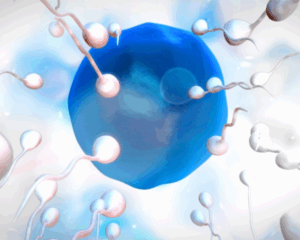
Prolistem for Non-Obstructive Azoospermia: A Comprehensive Guide
Prolistem for non obstructive azoospermia, Non-obstructive azoospermia (NOA)

Maintaining a healthy lifestyle and diet is crucial for fertility, particularly for men. One common question is whether milk plays a significant role in promoting sperm health. In this article, we’ll explore how milk can influence sperm quality, motility, and overall male fertility.
A balanced diet rich in essential vitamins, minerals, and nutrients can have a positive impact on sperm quality. Factors like sperm count, motility (movement), and morphology (shape) are crucial to fertility. Several nutrients found in milk might help improve these factors, thus supporting male reproductive health.
Milk is packed with nutrients that support overall health. Here are some important nutrients found in milk and their roles:
Calcium: Vital for bone health, muscle function, and sperm motility.
Protein: Necessary for sperm cell production and development.
Vitamin D: Enhances calcium absorption and plays a role in sperm production.
Zinc: Regulates male hormones and supports sperm health.
Magnesium: Contributes to muscle function and helps reduce stress.
Vitamin B12: Supports the nervous system and overall cell function.
These nutrients collectively help maintain and improve sperm health, which is essential for fertility.
For sperm to effectively reach the egg, they need to swim efficiently. Calcium plays an essential role in sperm motility, ensuring that sperm can move through the female reproductive system. Including milk in your diet may support this crucial function, improving the chances of conception.
Zinc is a critical nutrient that supports sperm count, motility, and the overall production of healthy sperm cells. Studies suggest that men with adequate zinc levels tend to have better sperm quality. Milk is a natural source of zinc, helping men maintain healthy levels of this important mineral.
Vitamin D is crucial for maintaining a healthy hormonal balance, which is essential for sperm production. Men with adequate levels of vitamin D tend to have higher sperm counts. Fortified milk provides an easy way to ensure you are meeting your vitamin D needs, potentially benefiting sperm health.
Milk is a great source of high-quality protein, which is necessary for the development of sperm cells. Protein provides amino acids that contribute to the creation of healthy sperm. Consuming protein-rich foods like milk can support optimal sperm production.
There are several misconceptions about the relationship between milk and sperm health. Let’s clear up some of the most common myths:
There’s a belief that milk, particularly cow’s milk, may reduce sperm count due to the presence of hormones used in dairy farming. However, research doesn’t support this claim. The levels of hormones found in milk are too low to significantly affect sperm count or fertility. On the contrary, the nutrients in milk can support sperm production.
While milk is commonly associated with bone health in women, it also provides benefits for men, especially in supporting fertility. Nutrients like zinc, calcium, and vitamin D help improve sperm motility and overall reproductive health.
Some individuals worry about the estrogenic effects of soy milk, but moderate consumption of soy products has not been shown to impact sperm count or testosterone levels. If you prefer soy milk, be sure to choose one that is fortified with calcium and vitamin D, just like dairy milk.
For those interested in improving sperm health, here are some ways to incorporate milk into your daily diet:
Drink Milk Regularly: Aim for at least one glass of milk each day to benefit from its nutrients, which can support sperm health.
Choose Fortified Milk: Look for milk fortified with additional vitamin D and calcium to ensure maximum benefits.
Try Lactose-Free or Plant-Based Milk: If you’re lactose intolerant, try lactose-free milk or fortified plant-based alternatives like almond or oat milk.
Combine Milk with Other Fertility-Boosting Foods: For a well-rounded approach, pair milk with other fertility-boosting foods like leafy greens, fatty fish, nuts, and seeds.
In addition to including milk in your diet, other lifestyle changes can support sperm health:
Exercise Regularly: Physical activity improves blood circulation and can enhance sperm quality.
Avoid Smoking and Excessive Alcohol: Both smoking and heavy drinking can negatively affect sperm production.
Reduce Stress: Chronic stress can affect hormone levels and sperm health. Incorporate stress-reducing activities like yoga and meditation into your routine.
Get Adequate Sleep: Sleep is essential for maintaining testosterone levels, which influence sperm production. Aim for 7-9 hours of quality sleep per night.
While milk alone won’t guarantee improved sperm health, its nutritional profile—rich in calcium, protein, zinc, and vitamin D—supports the essential functions required for healthy sperm. Including milk as part of a balanced diet can contribute to better sperm motility, count, and overall fertility. However, a holistic approach to fertility, which includes a healthy diet, regular exercise, and proper lifestyle choices, will provide the best results for improving sperm health.

Prolistem for non obstructive azoospermia, Non-obstructive azoospermia (NOA)

Introduction Male infertility, especially caused by azoospermia, affects

We are proud to have participated in the

Introduction: A New Hope in Male Infertility Treatment
PROLISTEM® is a Patented Formula
Copyright © 2025 Prolistem®